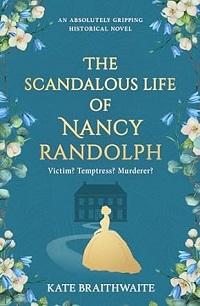The Bleeding Land and the English Civil Wars
Richard Lee
The launch of Giles Kristian‘s latest novel inspires Richard Lee to look at a period recently neglected by historical novelists.
 The English Civil War(s) used to be one of the great subjects of historical fiction. It was mostly a gentlemanly business. Cavaliers were dashing, honourable, flamboyant and frequently tragic. Roundheads were steely, politically modern, self-sacrificing and devout. These were the goodies, across the divide. The baddies were equally fascinating. Your royalists baddies were godless and debauched, your parliamentarian baddies kill-joys and all shades of religious fanatic. The period made for tremendous sagas too, with every family conflict and romance you can imagine, only writ LARGE. A good list of the older books, compiled in 1902, can be found on the Gutenberg site.
The English Civil War(s) used to be one of the great subjects of historical fiction. It was mostly a gentlemanly business. Cavaliers were dashing, honourable, flamboyant and frequently tragic. Roundheads were steely, politically modern, self-sacrificing and devout. These were the goodies, across the divide. The baddies were equally fascinating. Your royalists baddies were godless and debauched, your parliamentarian baddies kill-joys and all shades of religious fanatic. The period made for tremendous sagas too, with every family conflict and romance you can imagine, only writ LARGE. A good list of the older books, compiled in 1902, can be found on the Gutenberg site.
Latterly, civil war settings have been a far harder sell. That isn’t to say they’re scarce nowadays – you can read Ian Saunderson’s excellent guide to recent ECW books here, and you can always use our browse buttons above to search either by genre (English Civil War) or more broadly by century (17th Century) and find many titles. Notable, I think, are Lindsey Davis’ Rebels and Traitors (an Editors’ Choice for us – and Lindsey is a Guest of Honour at our Historical Novel Society London Conference 2012), and Claire Letemendia’s The Best of Men. But it is as if each book needs to struggle to tell readers why they should be reading it.
 The way publishing works – has always worked – is by the impact of what George du Maurier once referred to as ‘boom’. A book or author runs away with the public’s imagination, and then, for a while, selling within that genre or setting is vastly easier. Essentially readers are picking up the new book hoping it will be as good as the one they already love.
The way publishing works – has always worked – is by the impact of what George du Maurier once referred to as ‘boom’. A book or author runs away with the public’s imagination, and then, for a while, selling within that genre or setting is vastly easier. Essentially readers are picking up the new book hoping it will be as good as the one they already love.
For the English Civil War, the ‘boom’ novels were strangely not English, and in fact only featured the English struggles tangentially – but they were about as big a ‘boom’ as historical fiction has had: Les Trois Mousquetaires and its sequels. Swashbuckling novels of all standards and – actually – many different periods were written in this vein afterwards. The boots and pistols, the duels, the fair ladies, the gallant swordsmen – inevitably these were adopted for struggles of the same period on the other side of the English Channel. It was a style that survived well into the twentieth century, and indeed beyond: 2009 saw yet another film outing for the story, and A. L. Berridge also makes a very fair fist of it with her Chevalier series. But she can only get away with this for a French setting. That style won’t serve any more for the civil wars.
Historians have since changed our perceptions of the period. As Ian Saunderson suggests we now see the conflict as messy. No side has the right or the wrong of it, and no hero is going to get through it unscathed. The title of Giles Kristian‘s new book excellently conveys this: The Bleeding Land.
So – on publication day – are we in the presence of a new ‘boom’? Well, it’s a bit early to say, but our reviewer Gordon O’Sullivan likes it – see here. And one of our reviews editors, Kate Atherton, loves it, and has posted why in her own review on her blog For winter nights. I hope so. I would love this period to come back into the mainstream of historical fiction, and I think there is a very different story of these wars waiting to be told.
Giles has very kindly offered 3 signed hardbacks of the book for HNS members (which can be mailed anywhere in the world) – winners to be chosen randomly from those who send in correct answers to this question before the end of May 2012:
Which civil war protagonist wrote: ‘I beseech you, in the bowels of Christ, think it possible you may be mistaken.’?
You can also watch the promotional video below – and if you’re in London or Leicester you can see Giles at the book’s launch parties.







